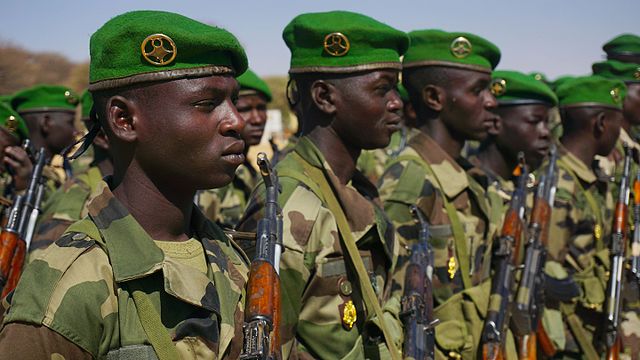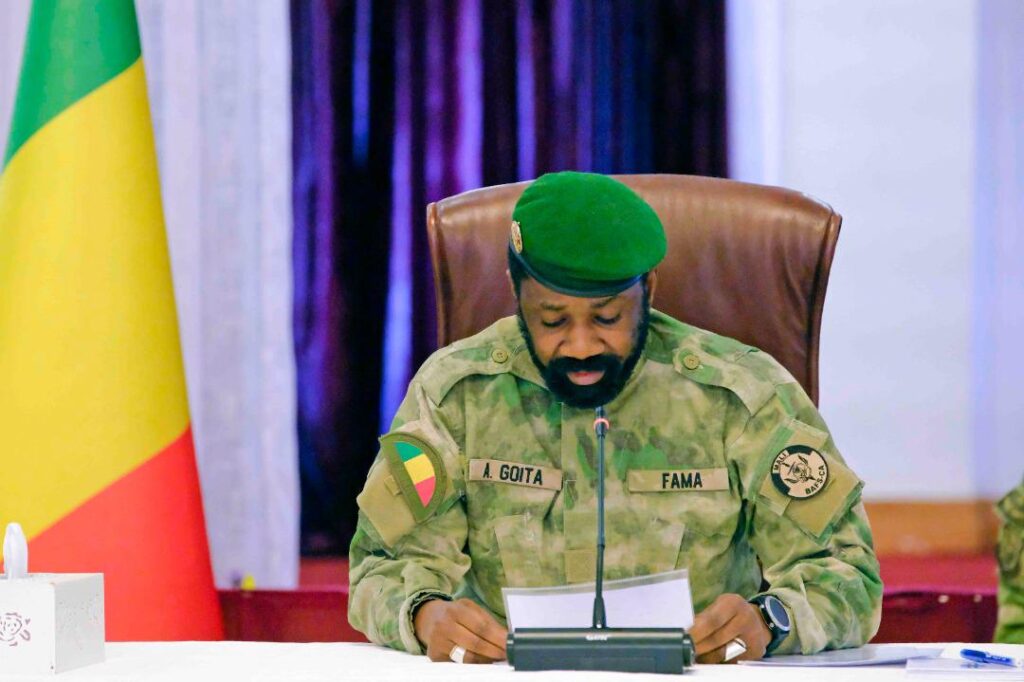Niger’s junta leader, General Abdourahamane Tchiani, has been sworn in for an additional five-year transition period. Per his previous statements, this transition was expected to conclude this year, leading to a return to civilian rule. However, this latest extension follows a familiar pattern seen in other military-led governments in the region—where “transitions” become indefinite and democratic processes are gradually sidelined.
The ultimate goal of military governments in West Africa appears to be the retention of power under the guise of a gradual return to democracy. Historically, coup leaders have justified their takeovers with promises of restoring order, fighting corruption, or addressing security threats. Yet, once in power, they often tighten their grip, limiting political opposition and postponing elections indefinitely. The pattern is clear: transition periods are extended, opposition voices are suppressed, and eventually, leaders seek legitimacy by swapping their military fatigues for civilian suits.
Many citizens and regional actors strongly oppose this model of governance. The erosion of democratic principles, suppression of political activities, and weakening of institutions raise serious concerns about long-term stability. But the juntas are not acting in isolation—they are emboldened by both regional dynamics and external backers.
The Failure of Regional Pressure and the Rise of a Military Bloc
The Economic Community of West African States (ECOWAS) initially responded to the Nigerien coup with strong rhetoric and threats of military intervention. However, the failure to act decisively in 2024 only reinforced the perception that regional organizations lack the leverage to enforce democratic norms. Instead of backing down, military governments in West Africa—particularly in Niger, Mali, and Burkina Faso—have grown closer, forming an informal alliance that rejects external pressure.
This growing military bloc has significant consequences:
- Diminished Regional Influence of ECOWAS: The inability to enforce its own democratic protocols weakens ECOWAS as an institution. Its credibility is eroding, especially when military-led states openly defy its authority.
- Stronger Diplomatic and Security Ties with Russia: Since 2021, Russia has expanded its presence in Africa, providing military and economic assistance to juntas. Beyond mercenaries, Moscow offers diplomatic cover, helping these governments resist Western-led sanctions and isolation.
- Border Security and the Extremist Threat: With extremist groups in the Sahel growing in strength, coastal West African nations like Ghana and Senegal now face a dilemma—whether to engage with military-led governments for security cooperation or risk further destabilization.
The Economic and Human Cost of Prolonged Military Rule
While military governments often present themselves as stabilizing forces, their prolonged rule tends to worsen economic conditions. Investor confidence declines, sanctions lead to economic strain, and mismanagement fuels public discontent.
Moreover, political repression under military regimes can escalate tensions. While juntas claim they are securing their nations, they often deepen divisions by cracking down on dissent. The more they restrict opposition and delay democratic transitions, the higher the likelihood of unrest—either through mass protests, insurgencies, or counter-coups.
The Need for a New Regional Strategy
Despite the complexities of the situation, one thing is clear: both the Sahel states and coastal West African countries need one another. A complete breakdown in communication between the two sides will only lead to more insecurity and economic hardship.
Diplomatic efforts from Ghana and Senegal are commendable but face significant roadblocks. For meaningful progress, regional actors must adopt a more nuanced strategy—one that balances engagement with pressure. Instead of issuing unenforceable ultimatums, ECOWAS and its allies should explore economic incentives for democratic reforms while strengthening regional security cooperation.
West Africa is at a crossroads. If military governments continue to solidify their power and resist democratic transitions, the region risks prolonged instability. However, if diplomatic efforts can successfully bridge the divide between juntas and democratic states, there may still be a path toward stability and cooperation.
For now, Niger’s extended transition period is yet another sign that the military-led governments of West Africa have no intention of stepping aside anytime soon. And unless regional and international actors adjust their approach, the trend of entrenched military rule may become the new normal.Niger’s junta leader sworn in for an extra five-year transition period. Per his words back then, the supposed transition period should be ending this year. Nonetheless, here we go with another five-year transition period declared with the swearing-in of General Abdourahamane Tchiani.
The ultimate goal of the junta-led governments in the region is to stay on until such time that their leaders get to remove their military fatigues and run for elections. Many have disagreed. Unfortunately for “the right to vote and to be voted for”, every action by the juntas points to what I keep saying.
After threats by regional actors to use force to remove the Nigerien junta resulted in a debacle in 2024, military governments in West Africa and beyond have become emboldened and most importantly, gotten closer.
Russia has consistently shown that it is ready to grant them diplomatic and security support since 2021. Apart from the use of mercenaries, Moscow has given other material support to the military government. This has helped strengthen a triumvirate they have created across one of the largest landlocked spaces in Africa.
The expansive space has meant that coastal states of the Economic Community of West African states will need to depend on the military governments to secure their borders against the southward movement of violent extremist organizations currently destabilizing the Sahel.
Consequently, new leaders in Senegal and Ghana have embarked on shuttle diplomacy at different times to help bridge the gulf between the two sides. However, these efforts have proven difficult as staying on to power against established regional protocols, is the goal of the juntas.
The military governments in Mali and Burkina Faso have also made similar moves to extend their time in office. This is happening concurrently with widespread limitations on political activities.
Despite the complexity of the situation, what is not in dispute is the fact that both Sahel states and coastal states need one another for security and economic purposes. The two sides need to continue discussions that may prevent escalations that could be harmful to ordinary people.

More on this story: Niger coup: Russia likely behind





